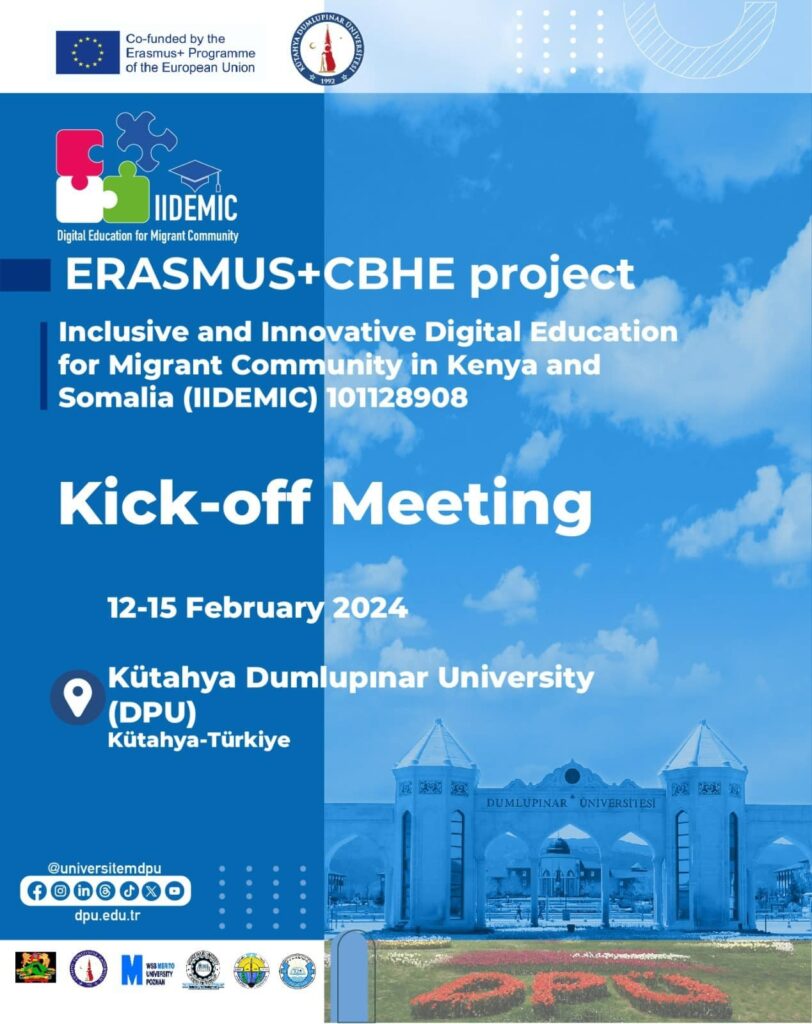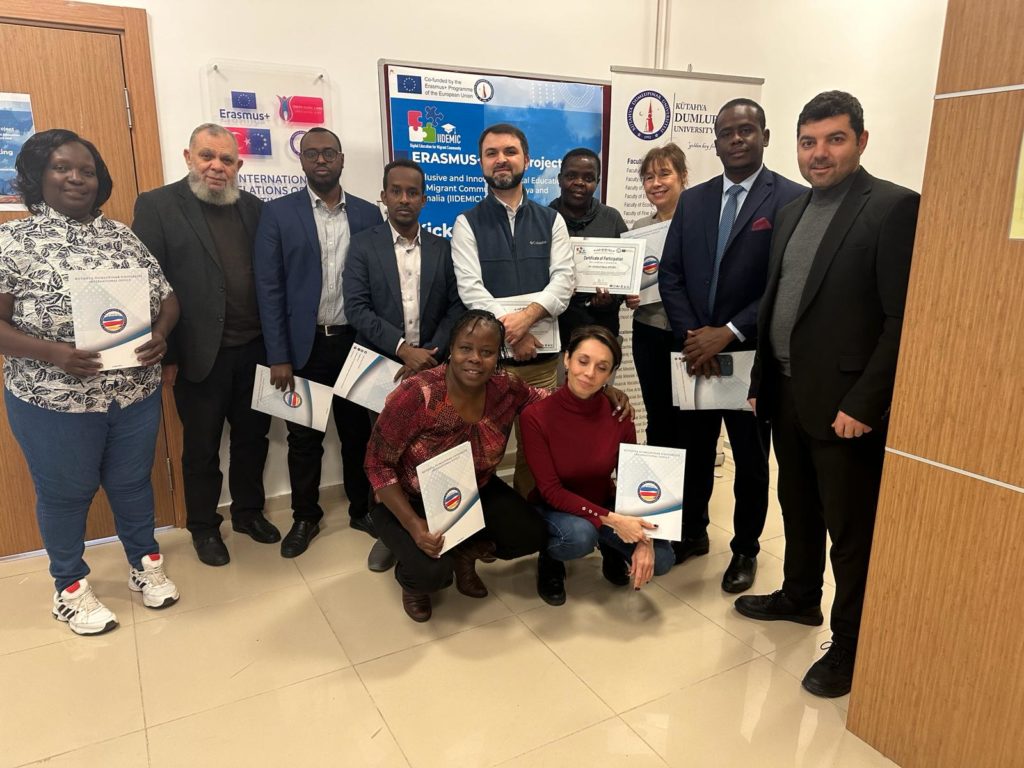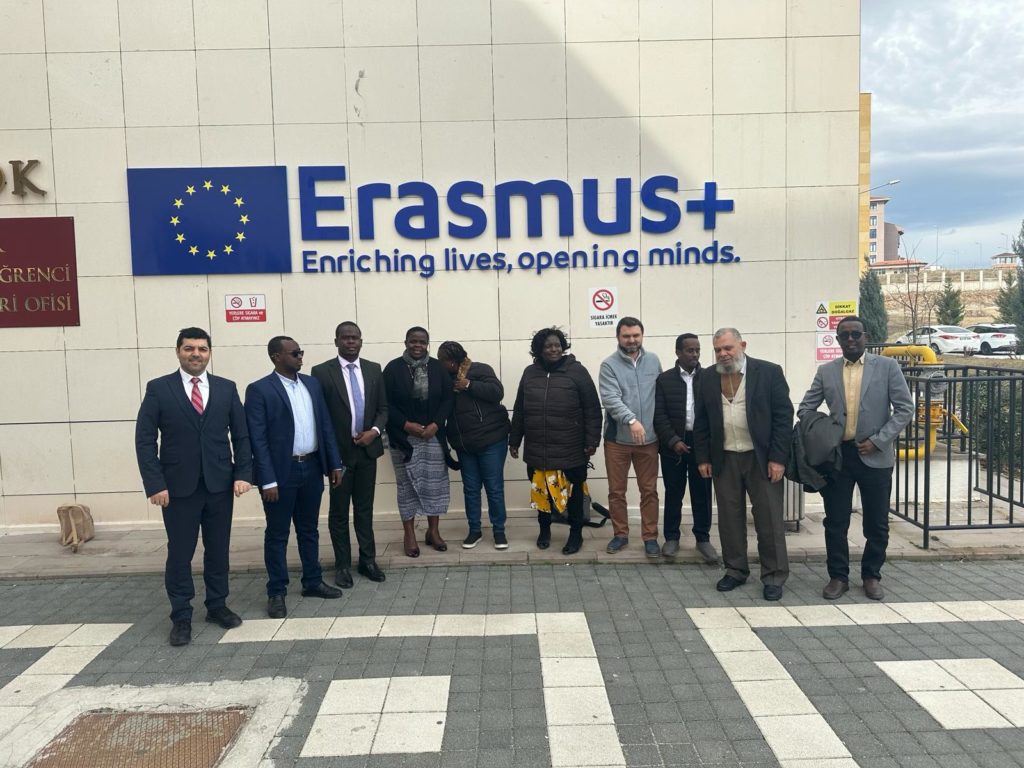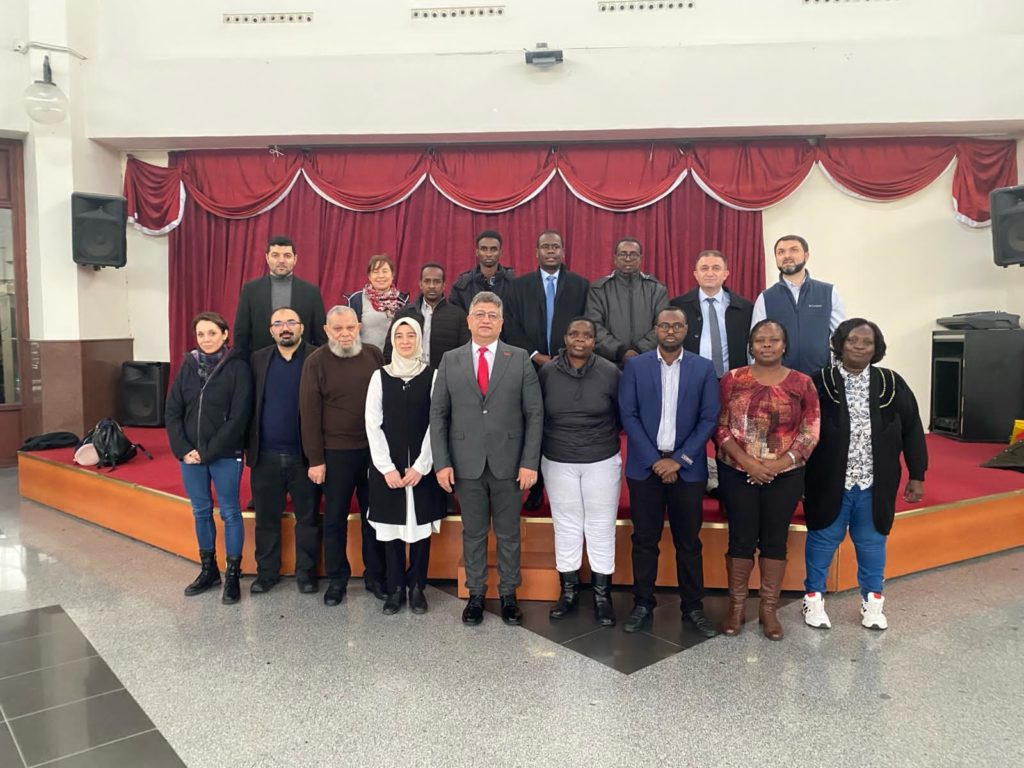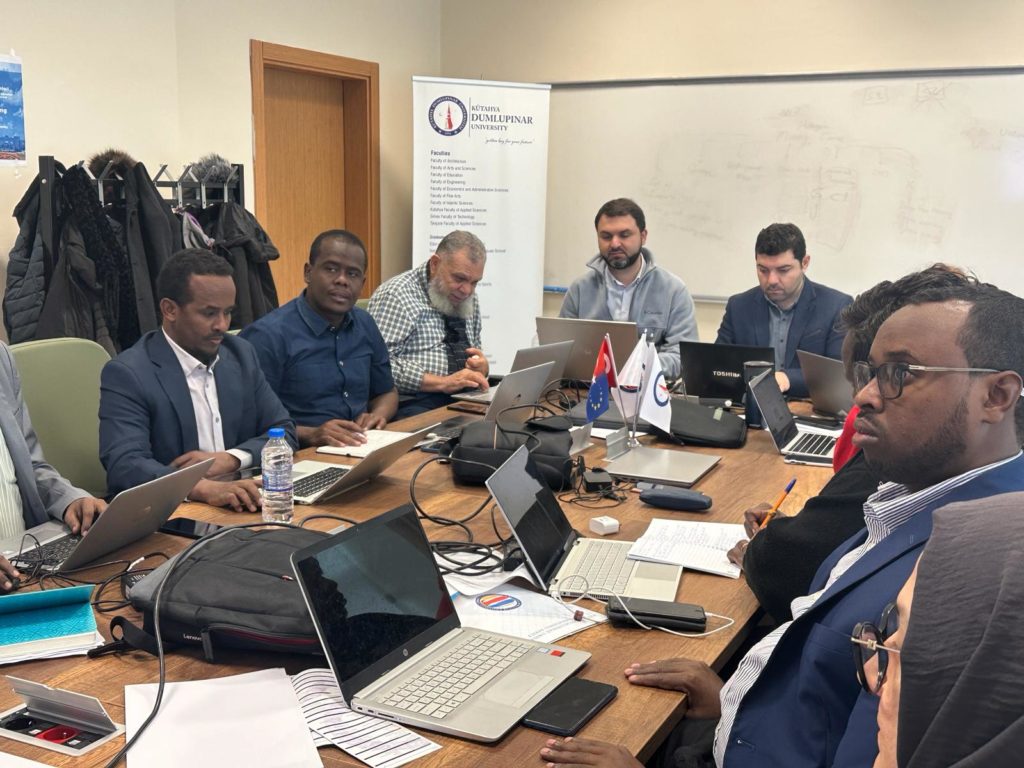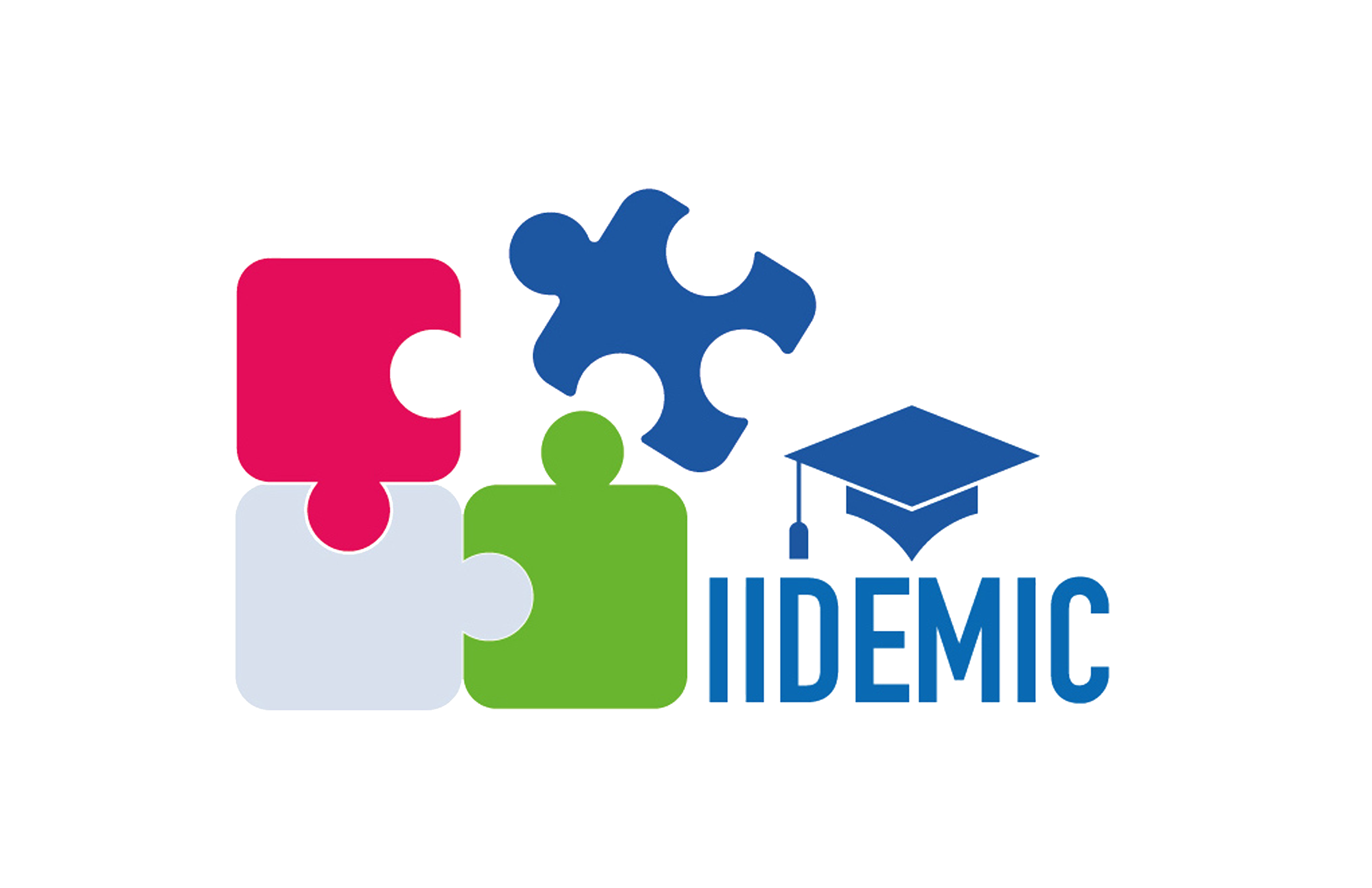
Successful Kickoff Meeting: IIDEMIC Project
The Inclusive and Innovative Digital Education for Migrant Community in Kenya and Somalia (IIDEMIC) project officially launched with a four-day kickoff meeting hosted by Kütahya Dumlupınar University (DPU) in Turkey from February 12th to 15th, 2024. Funded by ERASMUS+ CBHE and coordinated by Kenyatta University, the IIDEMIC project is set to transform education for Somali refugees and host communities in Kenya and Somalia by providing inclusive digital learning and enhancing 21st century soft skills necessary for employability and innovation.
The Kickoff Meeting Highlights
The kickoff meeting brought together representatives from partner institutions: Kenyatta University, Kütahya Dumlupınar University (DPU), Masinde Muliro University of Science and Technology (MMUST), Mogadishu University, Red Sea University, WSB Merito Universities (WSB), and the Kenya Ministry of Education, which participated virtually. This diverse group of institutions is united by a shared vision: to empower refugees and displaced communities through innovative educational solutions.
Each partner sent two representatives to the event, including institutional coordinators, ensuring full participation and engagement in the strategic discussions. The meeting was chaired by Dr. Adelheid M. Bwire, the Project Coordinator from Kenyatta University, who opened with a speech that emphasized the importance of teamwork and collaboration for the project’s success.
Prof. Dr. Süleyman Kızıltoprak, Rector of DPU, also addressed the gathering, stressing the importance of this international partnership in promoting educational transformation. The presence of key decision-makers and stakeholders provided a platform for discussions around the project’s goals, responsibilities, and future direction.
Strategic Discussions and Project Objectives
The kickoff meeting focused on setting the foundation of the project by outlining its objectives, deliverables, and work packages. One of the main goals of the IIDEMIC project is to provide inclusive education tailored to the needs of Somali refugees, enhancing their employability through 21st century skills.
The discussions during the event covered the project’s key objectives, including but not limited to:
- Creating a lifelong learning platform that is accessible to refugee and migrant populations, aimed at building skills that increase employability opportunities in Kenya and Somalia.
- Developing an Inclusive Education program to enhance teachers’ skills in inclusive pedagogy, supporting diverse learners and promoting educational equity.
- Strengthening soft skills competencies among Somali refugees and IDPs, improving their entrepreneurial innovation and ability to leverage opportunities through technology.
- Harnessing the power of ICT to improve access, quality, and management of education systems, ensuring that refugee and migrant communities can benefit from modern educational tools.
These sessions allowed each partner institution to clarify their role within the project and their contributions to the various work packages. Work packages include curriculum development, the creation of digital learning platforms, the implementation of pilot teaching programs, dissemination & exploitation of projects results, and quality control mechanisms to ensure project success.
Dr. Adelheid M. Bwire, in her opening remarks, emphasized the importance of approaching these tasks with a shared vision. She stressed that the project is not just about providing immediate solutions but creating sustainable educational systems that will continue to benefit refugee communities long after the project ends.
Establishing Project Management Committee
A crucial outcome of the meeting was the formation of the Project Management Committee (PMC), which will oversee the implementation of the project across its duration. Each partner institution will have a representative in the PMC, ensuring a diverse and inclusive decision-making process. The PMC will be responsible for monitoring the progress of each work package, resolving any challenges, and ensuring that the project remains aligned with its overall objectives.
Establishing the Quality Control Committee
Another key outcome of the kickoff meeting was the establishment of the Quality Control and Monitoring Committee (QCMC), an essential body tasked with overseeing the project’s outputs and ensuring adherence to the highest standards. This committee, composed of representatives from each partner institution, will evaluate the progress and quality of each work package. The committee’s responsibilities include reviewing the deliverables, addressing any deviations from the plan, and providing feedback for continuous improvement.
Planning for Sustainability and Long-Term Impact
The meeting placed significant emphasis on ensuring the sustainability of the IIDEMIC project’s outcomes. During discussions on Work Package 7 (WP7): Dissemination & Exploitation of the Project Results, participants highlighted the importance of spreading awareness about the project’s achievements to a broader audience. Mogadishu University will lead this work package and develop a dissemination strategy that utilizes social media, community engagement, and partnerships with local stakeholders.
The participants also discussed how to maintain the project’s impact beyond its funding period. The team agreed that building strong relationships with local educational institutions, refugee support organizations, and government agencies will be key to sustaining the project’s results.
Conclusion
The successful kickoff meeting of the IIDEMIC project marks the beginning of a transformative journey toward improving digital education for refugee communities in Kenya and Somalia. With a clear roadmap, strong partnerships, and a shared commitment to empowering refugees and IDPs, the IIDEMIC project will make a lasting impact on the educational landscape for refugees.
As the project moves forward, the dedication and collaboration of all partner institutions will be crucial in achieving its ambitious goals. Together, the team is working towards a future where education is accessible, inclusive, and innovative for all, regardless of circumstance.
